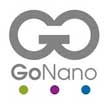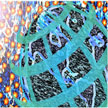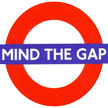Showing Spotlights 1 - 8 of 87 in category All (newest first):
 Blockchain technology can be used in various ways to improve the transparency, integrity, and security of data in scientific research. For example, it can be used to create a tamper-evident record of research data, facilitate collaborations between researchers, protect intellectual property, fund scientific projects, and track the movement of materials throughout the supply chain. By using blockchain, researchers can ensure that their work is properly credited and cited, and that the data they collect is accurately recorded and preserved for future use.
Blockchain technology can be used in various ways to improve the transparency, integrity, and security of data in scientific research. For example, it can be used to create a tamper-evident record of research data, facilitate collaborations between researchers, protect intellectual property, fund scientific projects, and track the movement of materials throughout the supply chain. By using blockchain, researchers can ensure that their work is properly credited and cited, and that the data they collect is accurately recorded and preserved for future use.
Jan 11th, 2023
 Key components that are essential to the functioning of the Internet of Things include sensors and devices, network connectivity, data storage and processing, user interfaces, and security. Many aspects of these elements can be enhanced by nanotechnologies. Nanotechnology can enhance the performance and capabilities of IoT devices by enabling the creation of smaller, more efficient, and more versatile sensors, antennas, and processors. These improvements can lead to greater accuracy, energy efficiency, and versatility in a variety of applications, including healthcare, industrial monitoring, and environmental sensing.
Key components that are essential to the functioning of the Internet of Things include sensors and devices, network connectivity, data storage and processing, user interfaces, and security. Many aspects of these elements can be enhanced by nanotechnologies. Nanotechnology can enhance the performance and capabilities of IoT devices by enabling the creation of smaller, more efficient, and more versatile sensors, antennas, and processors. These improvements can lead to greater accuracy, energy efficiency, and versatility in a variety of applications, including healthcare, industrial monitoring, and environmental sensing.
Jan 9th, 2023
 The EU-funded GoNano project explored how co-creation can be used to enhance the responsiveness of nanotechnology research and innovation. Responsiveness is understood as the capacity and willingness of researchers and developers to integrate societal considerations in the early stages of technology development. Over the course of three years, GoNano brought together citizens, civil society organizations, industry, researchers, and policymakers across Europe to align future nanotechnologies with societal needs and concerns.
The EU-funded GoNano project explored how co-creation can be used to enhance the responsiveness of nanotechnology research and innovation. Responsiveness is understood as the capacity and willingness of researchers and developers to integrate societal considerations in the early stages of technology development. Over the course of three years, GoNano brought together citizens, civil society organizations, industry, researchers, and policymakers across Europe to align future nanotechnologies with societal needs and concerns.
Sep 9th, 2020
 Researchers a new strategy for designing Pickering emulsion based on halloysite nanotubes and exploring chitosan and pectin as thickener additives for the development of cleaning and preservation applications for cultural heritage. This novel and facile strategy to prepare hydrogel containing oil-in-water stable emulsion offers an alternative route to prepare formulations with high performance and based on sustainable materials for the controlled cleaning and preservation of stone-based artworks.
Researchers a new strategy for designing Pickering emulsion based on halloysite nanotubes and exploring chitosan and pectin as thickener additives for the development of cleaning and preservation applications for cultural heritage. This novel and facile strategy to prepare hydrogel containing oil-in-water stable emulsion offers an alternative route to prepare formulations with high performance and based on sustainable materials for the controlled cleaning and preservation of stone-based artworks.
May 8th, 2019
 There is a proposal for a new legislative framework tailored for nanomaterials and their applications called Registration, Evaluation, Authorization, Categorization and Tools to Evaluate Nanomaterials - Opportunities and Weaknesses (REACT NOW). REACT NOW is the first attempt to present a truly comprehensive and transparent regulatory decision-making framework tailored for nanomaterials. This proposal for new legislative framework combines registration, evaluation, authorization and categorization of nanomaterials.
There is a proposal for a new legislative framework tailored for nanomaterials and their applications called Registration, Evaluation, Authorization, Categorization and Tools to Evaluate Nanomaterials - Opportunities and Weaknesses (REACT NOW). REACT NOW is the first attempt to present a truly comprehensive and transparent regulatory decision-making framework tailored for nanomaterials. This proposal for new legislative framework combines registration, evaluation, authorization and categorization of nanomaterials.
Sep 7th, 2017
 Education has long been recognized as an important factor for growing the fields of nanoscience and nanotechnology and solidifying and expanding their roles in the global economy. Leading researchers from the field discuss innovative learning models that are being applied at the undergraduate level in order to train future leaders at the interface of engineering and management. They have a set of five recommendations to improve the current situation.
Education has long been recognized as an important factor for growing the fields of nanoscience and nanotechnology and solidifying and expanding their roles in the global economy. Leading researchers from the field discuss innovative learning models that are being applied at the undergraduate level in order to train future leaders at the interface of engineering and management. They have a set of five recommendations to improve the current situation.
Jun 21st, 2016
 The European Commission has published a compendium 'Nanotechnologies: Principles, Applications, Implications and Hands-on Activities' that has been specifically developed to provide the educational communities with relevant, accurate and updated materials to inform, motivate and inspire young people to know more about nanosciences and nanotechnologies concepts and applications. This resource has been developed within the context of the European research project Nanoyou, and it has been enriched with numerous and multifaceted inputs, reflections and insights on societal issues, also provided by the European project TimeforNano.
The European Commission has published a compendium 'Nanotechnologies: Principles, Applications, Implications and Hands-on Activities' that has been specifically developed to provide the educational communities with relevant, accurate and updated materials to inform, motivate and inspire young people to know more about nanosciences and nanotechnologies concepts and applications. This resource has been developed within the context of the European research project Nanoyou, and it has been enriched with numerous and multifaceted inputs, reflections and insights on societal issues, also provided by the European project TimeforNano.
Oct 6th, 2014
 With missing data about the large scale impact of nanotechnology, life cycle assessments of potential nanoproducts should form an integral part of nanotechnology research at early stages of decision making as it can help in the screening of different process alternatives. So far, however, life cycle studies of emerging nanotechnologies have been susceptible to huge uncertainties due to issues of data quality and the rapidly evolving nature of the production processes. A recent paper investigates the suitability of the U.S. regulatory system as a comprehensive package addressing multiple types and uses of engineered nanomaterials over their life cycle.
With missing data about the large scale impact of nanotechnology, life cycle assessments of potential nanoproducts should form an integral part of nanotechnology research at early stages of decision making as it can help in the screening of different process alternatives. So far, however, life cycle studies of emerging nanotechnologies have been susceptible to huge uncertainties due to issues of data quality and the rapidly evolving nature of the production processes. A recent paper investigates the suitability of the U.S. regulatory system as a comprehensive package addressing multiple types and uses of engineered nanomaterials over their life cycle.
Aug 13th, 2013
 Blockchain technology can be used in various ways to improve the transparency, integrity, and security of data in scientific research. For example, it can be used to create a tamper-evident record of research data, facilitate collaborations between researchers, protect intellectual property, fund scientific projects, and track the movement of materials throughout the supply chain. By using blockchain, researchers can ensure that their work is properly credited and cited, and that the data they collect is accurately recorded and preserved for future use.
Blockchain technology can be used in various ways to improve the transparency, integrity, and security of data in scientific research. For example, it can be used to create a tamper-evident record of research data, facilitate collaborations between researchers, protect intellectual property, fund scientific projects, and track the movement of materials throughout the supply chain. By using blockchain, researchers can ensure that their work is properly credited and cited, and that the data they collect is accurately recorded and preserved for future use. 
 Subscribe to our Nanotechnology Spotlight feed
Subscribe to our Nanotechnology Spotlight feed





